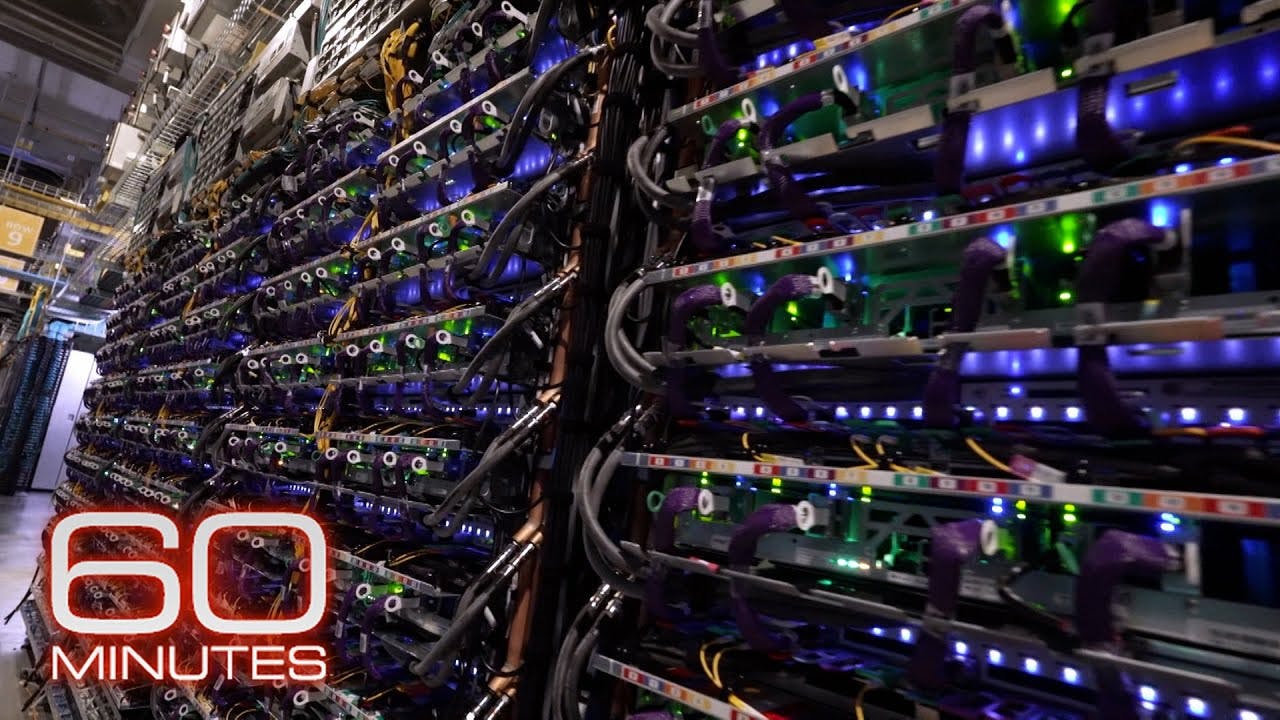Artificial Intelligence | 60 Minutes Full Episodes
14 Feb 2024 (almost 2 years ago)

The Oracle of AI (11s)
- Artificial intelligence (AI) has made significant advancements, allowing machines to learn and process information in novel ways.
- Kai-Fu Lee, an influential figure in AI, believes that AI will have a profound impact on the world, potentially surpassing any other event in human history.
- China has emerged as a global leader in AI investment, attracting half of the world's AI capital in 2017.
- Advancements in AI are driven by faster computer chips, vast amounts of online data, and deep learning techniques that enable computers to learn from data without explicit programming.
- AI systems can now recognize and analyze human faces, emotions, and even identify potential geniuses from rural areas.
- AI has the potential to revolutionize education by providing personalized learning opportunities, especially for students in remote areas.
- China's rapid development in AI, fueled by its vast data collection, poses a challenge to Silicon Valley's dominance in the field.
- The Chinese government prioritizes AI dominance, viewing technology as a crucial tool for control and power.
- AI poses a significant threat to jobs, with 40% of jobs worldwide at risk of displacement by technology in the coming decades.
- Despite the hype, current AI systems lack general intelligence and are limited to specific tasks.
- The development of artificial general intelligence (AGI) that can think like humans is unlikely to occur within the next 30 years or possibly ever due to the complexity and limitations of neural networks and computational algorithms.
The Revolution (Part 1) (12m56s)
- Artificial Intelligence (AI) has advanced significantly, enabling machines to teach themselves complex skills and communicate creatively with humans.
- Google CEO Sundar Pichai expressed concerns about the rapid pace of AI evolution compared to societal adaptation but remains optimistic due to early discussions on its implications.
- Google's new campus in Mountain View, California, showcases sustainable technology, including solar power and water conservation.
- Sundar Pichai's personal experience with limited access to technology in India shaped his perspective on its transformative power.
- Google's dominance in internet searches and smartphones is challenged by Microsoft's integration of a chatbot in its search engine, prompting Google to release its chatbot named Bard.
- Bard operates differently from Google search, generating content and ideas from a self-taught language model rather than searching the internet.
- Bard demonstrated its capabilities by summarizing the New Testament in Latin, completing a six-word short story with a human-like narrative, and composing a poem in response to a prompt.
- AI has the potential to transform society and solve problems but also poses challenges, including job displacement and the spread of disinformation.
- AI systems can assist humans in various tasks, such as radiology and education, but they can also exhibit errors and hallucinations.
- The inner workings of AI systems are not fully understood, yet they are being widely used in society, raising questions about their creative and reasoning capabilities.
- There are differing views on AI's capabilities, with some seeing it as merely repeating learned patterns and others believing it exhibits emerging properties like creativity and planning.
- Approaching AI with humility and engaging in societal discussions is crucial to understanding and shaping its impact.
The Revolution (Part 2) (27m33s)
- DeepMind, a Google-owned AI company, showcased self-learning robots that play soccer without human programming. These robots learn by testing different moves, discarding ineffective ones, and building upon successful strategies.
- DeepMind's AI program plays thousands of games independently, developing its own tactics and coordination. Potential practical applications include robots capable of working in hazardous environments like mining, construction, exploration, and disaster recovery.
- DeepMind co-founder Demis Hassabis believes AI will be humanity's most important invention and that our adaptability will allow us to cope with the pace of change.
- DeepMind discovered that self-learning machines can be creative, as demonstrated by AlphaZero, a game-playing program that devised a novel winning chess strategy.
- DeepMind's AI program can solve protein structures in seconds, a task that would have taken billions of years of PhD time using traditional methods. Its protein database has led to various applications such as malaria vaccines, plastic-eating enzymes, and new antibiotics.
- The ultimate goal of AI research is to achieve artificial general intelligence, a learning machine with a wide range of talents.
- Critics argue that the rapid development of AI poses risks and requires careful consideration of ethical, social, and legal implications. Google CEO Sundar Pichai emphasizes the need for regulations, laws, and treaties to ensure the safe and responsible development of AI.